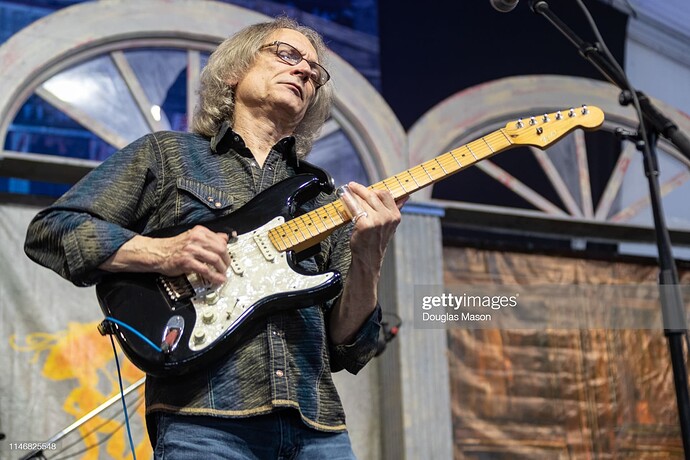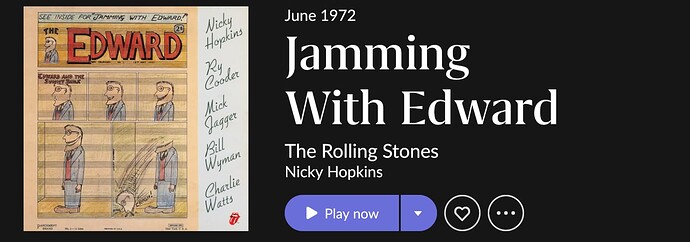Sam is very talented, thanks for the cool story. That must have been a fun night!
I recall seeing or reading Clapton talking about SRV glowingly. From memory, something like, he never has to think about where he is going next, he just goes. Implying that it was a skill he didn’t have, at least to SRV’s extent. I wish I remembered the reference. Maybe on a SRV video?
Here’s an interview with Clapton after SRV’s death:
When some people praise others in their field, the first consideration is whether that praise is coming while the person is still (alive and) a competitor, or does the praise have another goal. Politicians do that.
In either case, returning to Blues and Blues Rock:
I was watching Joe Bonamassa, and there is no question he has amazing skills, but personally, I lean more to the ways in which B.B. King and Buddy Guy play, slow and measured. What got me into The Thrill is Gone was the opening bars which are very soulful. Duane Allman had that as well.
I cannot recall who said that it was the “space between the notes” that mattered.
I imagine that when you can do speed and fretboard gymnastics, the drive/desire to play fast and furious can overtake you, and certainly the audience loves such movement.
I cannot speak for anyone else, but Yngview’s classical fretboard work and even van Halen were impressive without being musical (to me).
I speculate that it has more to do with whether you focus upon something you can whistle or sing versus something that is stunningly remarkable.
John Hiatt in Smashing Perfectly Good Guitars, notes “whistling every note he ever played.” Try whistling Eruption.
Having learned to play those opening bars of The Thrill is Gone to a reasonable degree of proficiency, I’m in awe of B.B.'s simplicity and timing. The opening to Peter Green’s Need Your Love So Bad is another. I’ve learnt so much about playing and soloing from those two classic intros alone.
OTOH, the “Justin Guitar” and other teachers’ school of thought that you should “learn riffs and join them together” is the antithesis of musicality for me.
This. It’s skillful, but not usually musical. Unfortunately, I’ve heard too much of it down my local Blues club, and too much that is completely out of whack with the essence of the song.
And it crosses genres too; I feel this way about an awful lot of skillfully played, but in the final analysis soulless, Jazz solos. Including some popular contemporary artists that I feel are rated for their ability to riff rather than their ability to make music.
Perhaps, but not me. Emperor’s New Clothes IMO.
I believe the “space between the notes” quote is attributed to Claude Debussy, although there is also an earlier quote “The music is not in the notes, but in the silence between” which is attributed to Mozart.
Thank you for filling in the spaces between my thoughts. We have time signatures because of the importance of spaces, and we have musical notation in which pauses are marked.
Speaking about space between the notes, here is a master of that approach:
Most here probably know that Sonny Boy Williamson II, not to be confused with the original Sonny Boy Williamson, was the author of many blues standards including Help Me, All My Love in Vain, Nine Below Zero, and Bring it on Home, among others.
Bring it on Home was ripped off (rather than covered) by Led Zeppelin who played without giving him credit including mirroring his style precisely in the opening before rocking out. Not positive, but I think they were sued and had to pay up.
How about Popa Chubby singing Hey Joe!
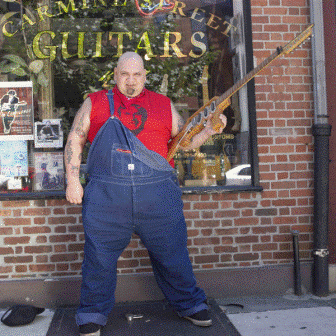
Jeff Healy ”Mess of the Blues”
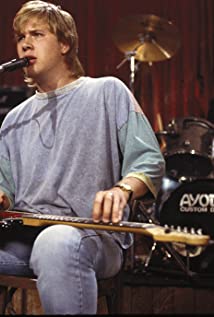
Popa Chubby is amazing in technological prowess. While some may prefer his rocking, stun-with-notes version, I think Hendrix did more of the “space between notes” version. He is lyrical while Mitch Mitchell pushes the pace from underneath, still allowing Hendrix to float above.
I was curious, as the Love version of Hey Joe was always one I liked and the first I heard (I was a HS freshman in ‘66 and Hendrix’ version was the next year), so I looked it up. Interesting! The original version was by Billy Roberts, solo on acoustic, yet still powerful. Hendrix stuck to his arrangement closely.
Niela Miller claims he ripped off the song from her and copyrighted it! I can see that it certainly could have come from her song, though modified quite a bit, particularly the words.
Great background information. Thank you. There is an SACD from PS Audio on their Octave Records “Hey Joe” by Otis Taylor. You might enjoy.
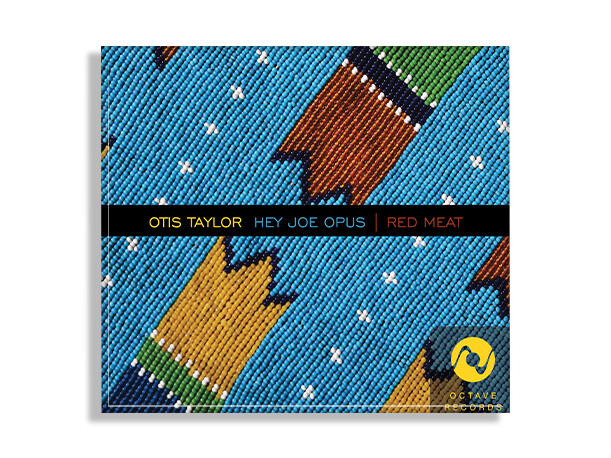
Another good one!
Some good Hey Joe’s shared… I always liked Roy Buchanan’s version:
Last night I watched a YouTube video about Ry Cooder. The video talked about this album, which I had never heard of. This is a laid back jam session with Mick Jagger, Charlie Watts, Nicky Hopkins and Ry Cooder and was recording during the Let It Bleed recording sessions. Finding stuff like this is why I love streaming.
I saw that was on YouTube, but my wife wants to watch it together. In the interim, saw the grainy video of Jane Pauly about 13 yo Joe Bonamassa followed by his playing Locomotive Breath with Ian Anderson. My daughter talked to Anderson about flute years ago. Kids take such things in stride. Shall watch the Ry Cooder video.
Surprised these two blues legends have gone unmentioned thus far…
This has been a truly fun post. So many great blues and blues rock albums. I think that we’ve established that there are deep ties between the blues and rock genres. To acknowledge one, without the other would be crazy. I hope that people continue to look to the future. There are many great blues acts that languish in ambiguity because they aren’t Clapton or the Allman Brothers. They deserve every bit of the notoriety of those bands. Please do your research. They are out there. The guitar god still exists, they are now known as a blues guitarists.
I had that album back in the day! Forgot all about it.



